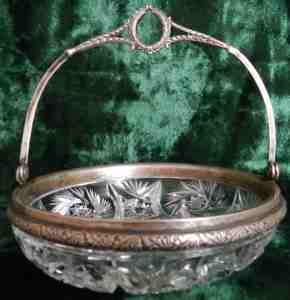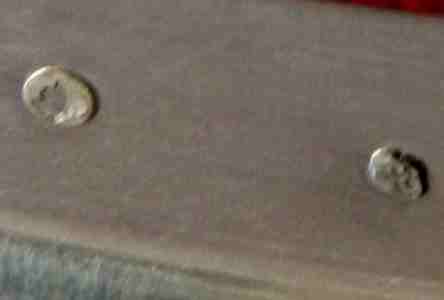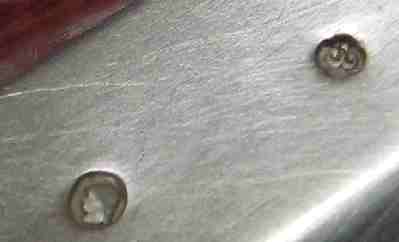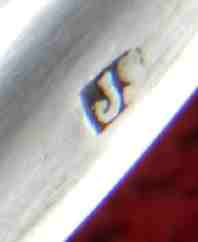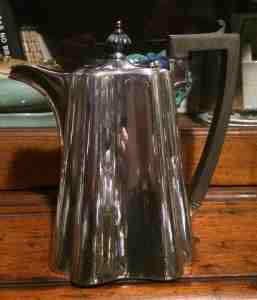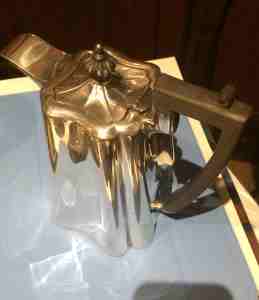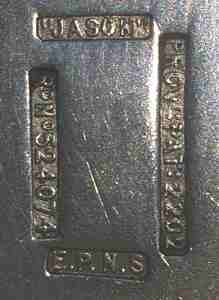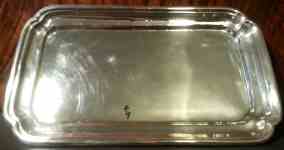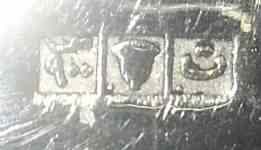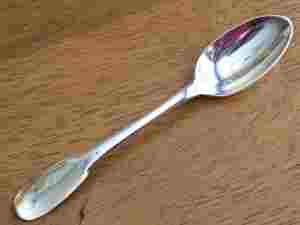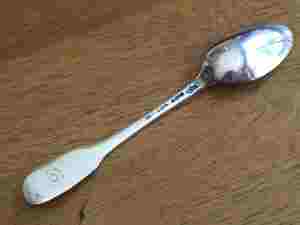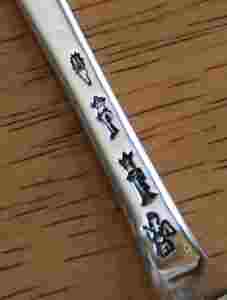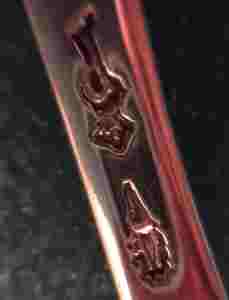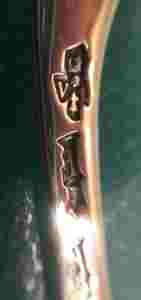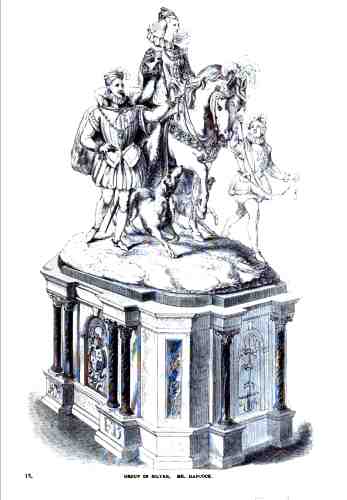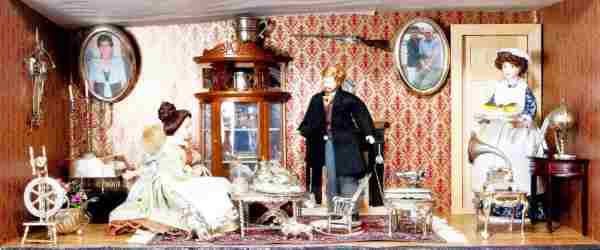
Bill Jackman presents:
Antique Silver Toys Miniature

... Silver toys have been made in many countries in the world
but nowhere as high a production figure as those made in Holland
and Great Britain. The demand for silver toys started in the
late 17th century and continued through to the end of the 19th
century when for economic reasons and change of fashion the
demand for silver toys diminished. However, miniature dolls
house toys continued to be made in pewter, wood and brass and
today they are still being produced in Holland. The fashion of
dolls house was at the origin of this surge of demand. It came
from Germany at the end of the 17th century, though models of it
had been made for many years before this. In Holland, it became
fashionable amongst wealthy young ladies to furnish dolls houses
with tiny silver toys which were exact copies of furniture and
fittings used in their own homes......
click
here

Welcome to new ASCAS members:
Carlo Crociatelli - Italy
Edward de Landmeter - The Netherlands
Diana Sprout - USA
Dobos Tunde - Slovakia
Tomago writes:
...I'm researching information about this mark.
Any suggestion will be highly appreciated
Tomago
Robin Gibson writes:
...I am writing about a very pretty jug with very clear markings,
but I am at a loss to find anything at all about the maker, when
or where it was made.
It is 16cm high lobed in cross section, but otherwise quite
plain.
Markings:
"JASON"
EPNS
PROV PAT 2202
Rd No 524074
If you know who Jason is, I would very much like to know
Kind regards
Robin
David Mckinley writes:
...here a spoon that is very like an English mote spoon but was made in Czechoslovakia in 1805/6 in the Austro-Hungarian period.
I am hoping someone can tell me what it was used for.
David Mckinley
Danusia Niklewicz writes:
You are correct that these marks are Egyptian, but the Assay
Office that has struck these marks was in Cairo not Alexandria.
To answer your question, the letter in this year mark is the
letter 't' and with the lotus flower present indicates it was
struck sometime from July 1992- August 1993.
Danusia Niklewicz
Christophe Ginter writes:
The spoon was produced in NANTES (Brittany) in 1750 (date
letter F) by a widow: Marie Anne ASSELIN, veuve (widow) François
GUILLOU. She worked in Nantes as from 1739 until 1751 (died
1772).
Her mark with initials VG standing for: V (veuve) and G (for
GUILLOU).
The other two marks are charge-discharge tax punches.
Finally, you may refer to my article "The
Hallmarks of silversmiths' widows in the Kingdom of France (18th
century)" that is available on the ASCAS website. ASSELIN's
mark illustrated there.
Christophe Ginter

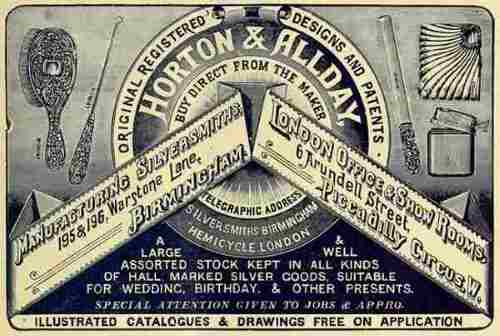
|
This month ASCAS presents an ancient advertisement
of:
HORTON & ALLDAY
Manufacturing Silversmiths
195 & 196 Warstone Lane
Birmingham
The partnership between Alfred George Horton and
Harry Allday began in the 1860s with a factory
active at 195/196 Warstone Lane, Birmingham.
After the death of George Horton (1886) the business
was carried on by Harry Allday. The firm opened show
rooms in London at 6 Arundel Street, Coventry
Street, Leicester Square (1893) and at 47, Poland
Street, Soho (1913). In 1931 the factory moved to
58, Northampton Street, Birmingham.
This image is part of the
ADVERTISEMENTS IN SILVER - SILVER ADVERTISING
section of www.silvercollection.it website
|
"A WORD per MONTH"


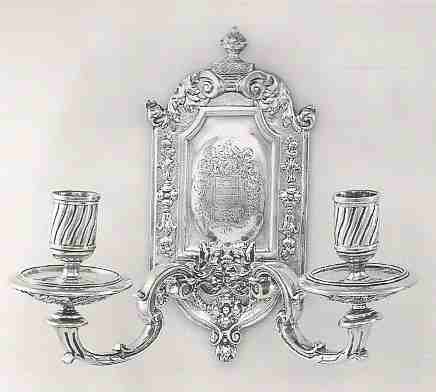
|
WALL SCONCES
This is a type of sconce to be hung on a wall,
having a back-plate to reflect the light of one or more
candles.
Silver wall sconces, previously unknown in England,
became familiar to British during the exile of Charles
II in the Low Countries.
They became very popular and fashionable but a scarce
number have survived from the late 17th and 18th century.
Toy-sconces in miniature were also common equipment on
Dutch and English dollhouses.
The introduction of modern lighting systems stopped the
production of wall sconces, although a certain
production continues and most examples actually
available to meet the needs of old style interior
decoration date to the late 19th/early 20th century....
more
|
"A SILVERSMITH per MONTH"
|
|
CHARLES FREDERICK HANCOCK
HANCOCK, SON & CO
C.F. HANCOCK & CO
HANCOCKS & CO
HANCOCKS & CO LTD
This London firm was founded
in 1849 by Charles Frederick Hancock (b. 1807 in
Birmingham). C.F. Hancock, a previous partner in the
firm of Hunt & Roskell, opened his own shop at 39 Bruton
Street obtaining soon after a Royal Warrant of
Appointment from Queen Victoria (advertising as 'successors
of Storr & Mortimer').
The firm had a manufactory workshop (closed in 1897)
adjoining his premises in Little Bruton Street and
retailed jewellery and silver manufactured by
silversmiths as Robert Hennel & Sons, Hayne & Cater, C.T
& G. Fox and others......
more
|
Closing our JULY 2015 edition of ASCAS Newsletter I hope you
have appreciated its content.
Your comments, suggestions and advice will be of great help.
My thanks to Robin Gibson, Christophe Ginter, Bill Jackman, Janjaap Luijt, David Mckinley,
Danusia Niklewicz, Tomago, for their precious contributions.
Giorgio Busetto
Secretary
DISCLAIMER AND PRIVACY POLICY
ASCAS is a community of people having a common
interest in antique silver.
It is a non-profit association without commercial links.
Membership is open to whomever has a true interest in
this subject matter.
ASCAS has no real property and no fees are requested nor
accepted from members.
ASCAS keeps in touch with its members only through
periodical newsletters, e-mails and web-site updating
and ignores and is not responsible for any other
activity pursued by its members.
Likewise, ASCAS is not responsible for opinions,
evaluation and images displayed, and in any form
published or supplied for publication, by its members
who, in any case, maintain the property of their works
and assure the respect of national and international
legislation about Intellectual Property.
ASCAS does not have the full addresses of its members (only
town, country and e-mail address are requested for
membership).
ASCAS handles and protects with care its members' e-mail
addresses, will not disclose the addresses to third
parties, will use this information only to reply to
requests received from members and for communications
strictly related to its activity.
These rules are expressly accepted by submitting the
membership request.
|
|
 newsletter
# 134 July 2015
newsletter
# 134 July 2015





